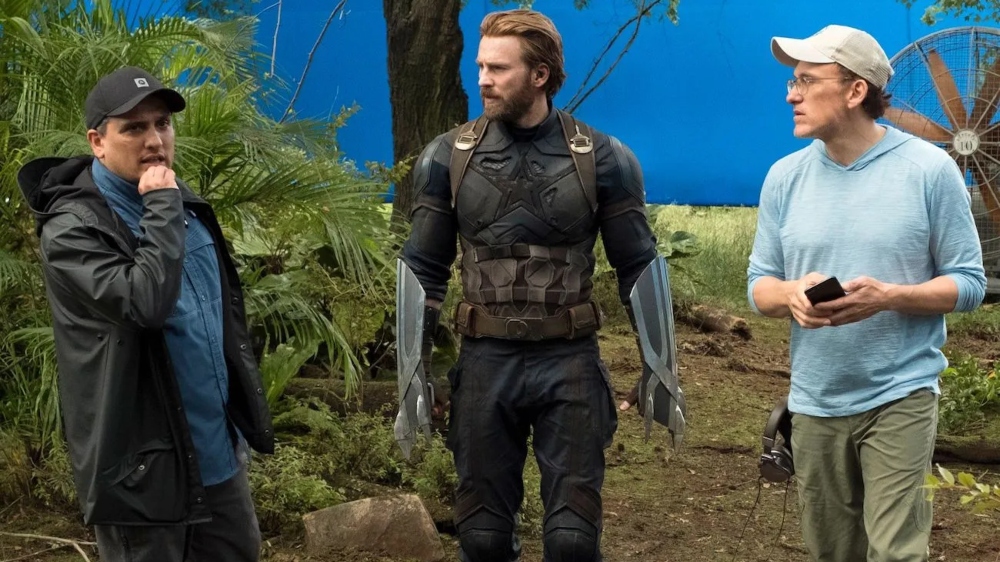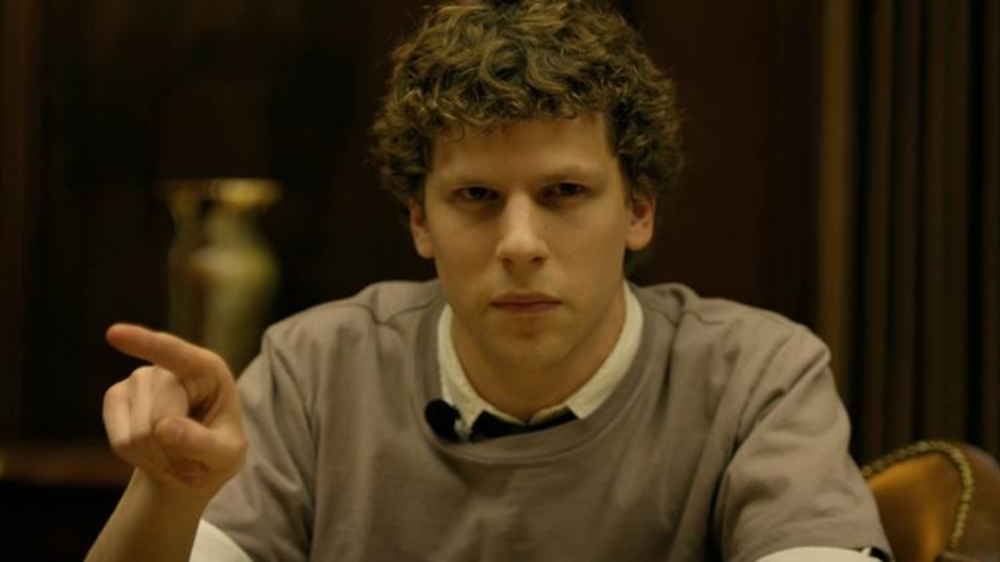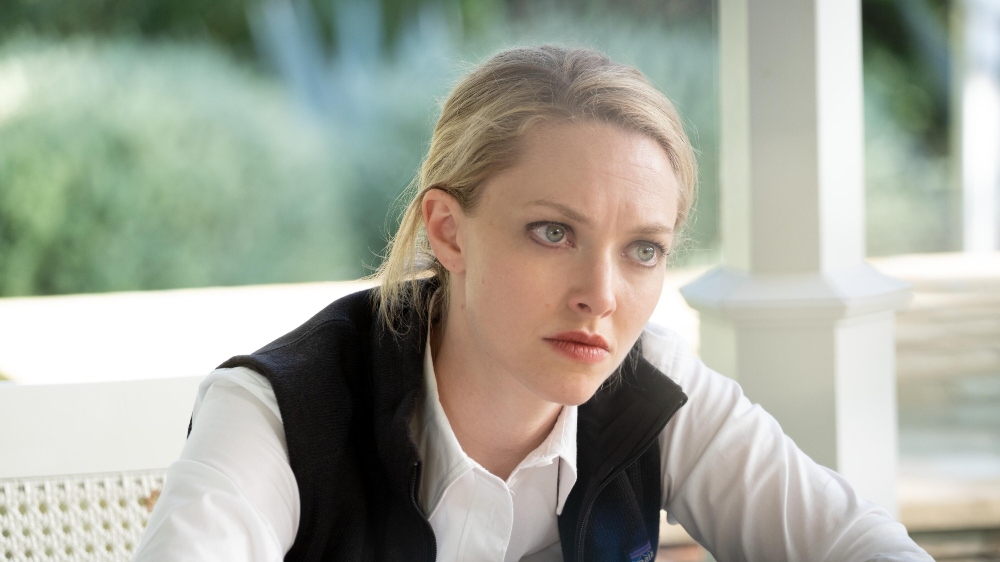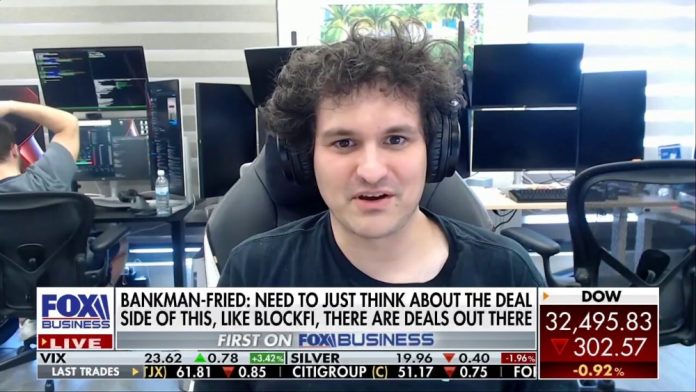I’m going to preface everything here by mentioning that I do not understand crypto, have never understood crypto, and have always thought it was something of a scam. Not like the tulip craze of 17th century Holland… but not terribly far off, either. I know people who have had some involvement in crypto, and at least two of them have tried to explain it to me, but let’s just say that I identified strongly with Larry David in that Super Bowl commercial — “Nah, I don’t think so.”
So it’s not like I experienced schadenfreude when that FTX exchange went belly up a couple of weeks ago, but I wasn’t terribly stunned by it, either. I don’t claim to always be right about these things, nor do I claim to have predicted this stunning collapse of the crypto market, but I just never really understood how crypto worked or how it could sustain, based on the limited understanding I had of the whole thing.
It sort of goes hand in hand with another thing I don’t understand, which is Hollywood’s newfound fascination with the young man behind FTX, Sam Bankman-Fried (hereafter to be referred to as “SBF” for simplicity’s sake). Even though SBF seems to be somewhat apologetic about the mess he created, a mess that could cost people billions of dollars, he’s still very clearly a criminal — one who makes Bernie Madoff look like a piker. Like Madoff, he has ruined lives and wreaked untold amounts of havoc, but that hasn’t stopped Joe and Anthony Russo and David Weil (creator of the buzzy Al Pacino series Hunters) from selling an eight-episode miniseries about the whole thing to Amazon.
This was announced, by the way, less than 24 hours after Amazon had lost out to Apple in a bidding war for the rights to Michael Lewis‘ new book about SBF, which he has been working on for the past six months while following the guy around from one chartered plane to the next. Lewis, in case you’re unaware, is the bestselling author of Moneyball and The Big Short, so this is sort of a big deal, not just in the publishing world, but in Hollywood as well.

There are a couple of things at play here, the obvious one being the story of SBF and FTX, and why both Amazon and Apple believe enough people would care about this to spend the inordinate amount of money needed to make these competing projects go. There’s an argument to be made that people love stories of failed genius (and more about that below), but when you’re dealing with something that is so baffling to so many people, is there really an audience for it?
I’m not being rhetorical, by the way. I’m genuinely curious.
We’ll delve further into that, but first I need to discuss the other aspect of this, which is the Russo Brothers themselves. I am a big fan of their MCU work, that being Captain America: Civil War, the last two Avengers movies, Infinity War and Endgame, and what I believe to be the very best Marvel movie of them all, Captain America: The Winter Soldier. And yet, other than the solid work they did directing episodes of shows like Arrested Development, Community, and the criminally underrated Happy Endings, I cannot say that I have enjoyed any other thing they’ve done. Not their first film, Welcome to Collinwood, nor their followup, You, Me and Dupree, nor their two post-MCU films, the Tom Holland-led Cherry, and the big Netflix action extravaganza The Gray Man. Honestly, that’s a big 0-for-4 for me, clunkers all.
They’re currently shooting the action-sci-fi-drama The Electric State, starring Millie Bobby Brown and Chris Pratt, and for their sake, I’m hoping it’s good, but I’m increasingly skeptical based on the information I have at hand.
But again, their TV work is quite good, which makes me wonder if the Russos shouldn’t just produce this SBF/FTX miniseries, but actually direct it themselves, given that the best work they’ve done has serviced someone else’s vision, be it Arrested Development’s creator Mitchell Hurwitz, Community’s Dan Harmon, Happy Endings’ David Caspe, or the MCU’s Kevin Feige. It’s not that the Russos didn’t bring anything to the table, but the driving force for each success came from elsewhere.
Sure, the Russos could hire someone else to direct this thing — it seems like it might be right up Adam McKay‘s alley, though I don’t think he’s directing TV at the moment and, besides, he already has plenty of his own highbrow, of-the-moment issues to dramatize — but tackling a project like this themselves could offer a creative reset and the chance to get back to the basics at which they were once so skilled. Just a thought.
Back to the failed genius thing… SBF is going to be the lead player in at least two projects from flashy creators when the show in which he should really be starring is a prison drama — and a reality series at that. However, now that SBF has decamped to the Bahamas, which doesn’t have an extradition treaty with the U.S., that sadly seems unlikely. But make no mistake, SBF is ultimately nothing more than a flimflam man, and that in and of itself explains why Hollywood is so fascinated by him. After all, Hollywood loves its evil geniuses.

David Fincher‘s The Social Network is a masterpiece of the genre, capturing a crucial, specific moment in time and showing how Mark Zuckerberg created Facebook. That was a fascinating movie with a terrific script from Aaron Sorkin, who won a well-deserved Oscar for it. The skill with which Fincher and Sorkin distilled the process of creating Facebook into a manageable and digestible narrative served as a model for anything that would come after.
The best subsequent example of that kind of storytelling is probably Hulu’s limited series The Dropout, which showcased the rise and fall of Elizabeth Holmes and brought Amanda Seyfried an Emmy. A less successful recent example is WeCrashed, starring Jared Leto and Anne Hathaway as Adam and Rebekah Neumann, the couple behind the WeWork debacle, which was not exactly the hit that Apple thought it was going to be when it cast (and paid) those two Oscar winners.
The Zuckerberg movie made sense at the time because he was successful, and while Facebook has become something of a cesspool of conspiracy theories and hate speech, it’s still got a couple billion members. The others? It’s that failed genius thing that people seem to be fascinated by for some reason, perhaps because we like to see others with more money and intelligence fall on their faces due to their own hubris. Or, at least, that’s what programmers think we want to see. But do we really? Apple, for instance, didn’t have great success with WeCrashed, yet the streamer still ponied up big money for Michael Lewis’ SBF book. The question I have is, “why?”

Is it because execs continue to look at projects like this and somehow believe they have to have it? Because if everyone else wants it, it must be worth chasing, even if they don’t personally believe in the material? For example, as great as The Dropout was, the series glamorized Holmes and her hustle, even as she crashed and burned and, just last week, was sentenced to 11 years in jail. Is that really what we need to see with SBF? Because the dramatization of the guy’s downfall will inevitably showcase the flashy trappings of his scam. The money, the political donations and influence, the flush of early success, the freewheeling gambling that led to it all falling apart … it’s going to make the guy look like a hero to a lot of people, even though he is clearly nothing of the sort.
Then again, maybe I just answered my own question.
The thing about Hollywood is that folks claim it evolves. Even as certain types of projects come into and fall out of vogue, the one thing that seems to stay the same is the madness behind “hot” projects, and how networks, studios, and streaming services lose their minds and all sense of objectivity when they’re up for grabs. This SBF project — or, I should say, projects, plural — is no different.
Do Weil, the Russos, and Apple believe that they can make another Social Network by examining SBF and his actions? Because that’s the ceiling right now, one that seems unlikely without Fincher’s participation. The Dropout is probably a closer model for success, but even that could be a reach, simply because Holmes’ story was pretty straightforward. I think the degree of difficulty in making an interesting TV show about a subject that is as inherently confusing as crypto is by its very nature means that everyone involved has set a dangerously high bar for themselves, one that will be awfully difficult to clear.
And that doesn’t even account for the fact that they’re going to have to get people to watch. That seems an even higher bar, and as SBF and his crypto bros well know, the higher the bar, the more likely the fall.
 Neil Turitz is a journalist, essayist, author, and filmmaker who has worked in and written about Hollywood for more than 25 years, though he has never lived there. These days, he splits his time between New York City and the Berkshires. He’s not on Twitter, but you can find him on Instagram @6wordreviews.
Neil Turitz is a journalist, essayist, author, and filmmaker who has worked in and written about Hollywood for more than 25 years, though he has never lived there. These days, he splits his time between New York City and the Berkshires. He’s not on Twitter, but you can find him on Instagram @6wordreviews.
You can read a new installation of The Accidental Turitz every Wednesday, and all previous columns can be found here.



